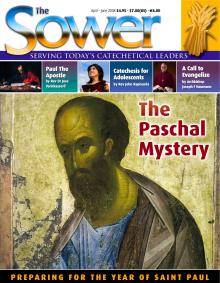‘If it feels good, do it.’ This slogan succinctly expresses a main feature of the mentality of today's society. What is this radically influential philosophical position? Hedonism.
In essence, hedonism holds that the only thing intrinsically good is pleasure, and the only thing intrinsically bad is displeasure. A thing is only good or bad in itself if it either gives or does not give pleasure.
This philosophy easily translates into practice. One ought only to act for the sake of pleasure. One's choice for option A as opposed to option B will be governed by which will bring the greatest pleasure. If both things will undoubtedly cause displeasure, one must choose the option causing the least displeasure. Thus, for the hedonist, pleasure is the main principle for all decision making.
What are some of the probable negative consequences of living by the tenets of an unbridled hedonistism? The hedonist will very likely self-absorbed, extraordinarily selfish, and willing to do anything to anyone for self-gratification. Using others as a means for pleasure can lead to sexual sins like fornication, adultery and rape. Everything is about what I want.
We need not look far to find this attitude affecting our nation, local community, and perhaps even ourselves. Blessed Pope John XXIII expressed the modern situation in this way, "There is, alas, a spirit of hedonism abroad today which beguiles men into thinking that life is nothing more than the quest for pleasure and the satisfaction of human passions. This attitude is disastrous. Its evil effects on soul and body are undeniable." (Mater et Magistra, 235)
The rest of this online article is available for current Guild members.
This article is from The Sower and may be copied for catechetical purposes only. It may not be reprinted in another published work without the permission of Maryvale Institute. Contact [email protected]

















